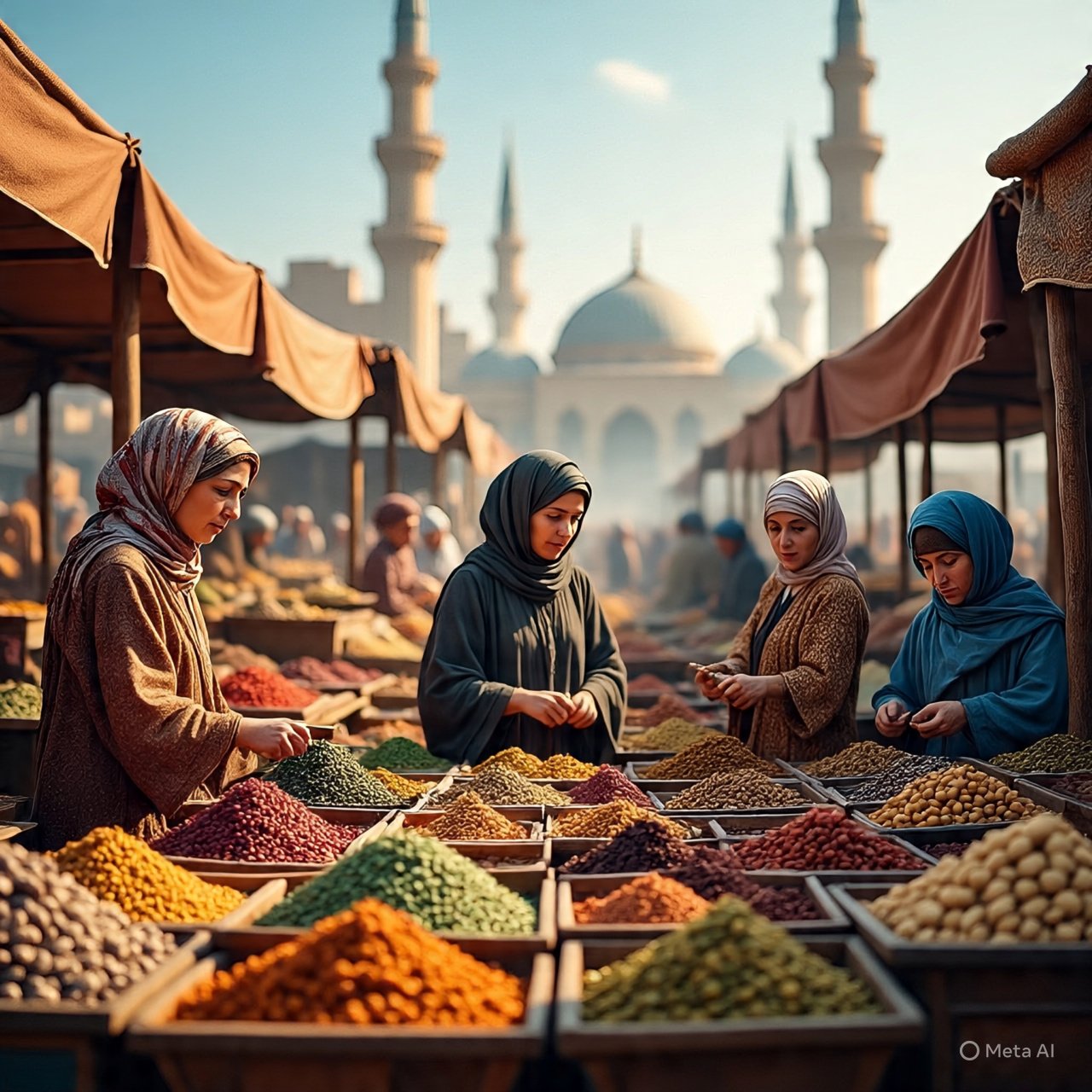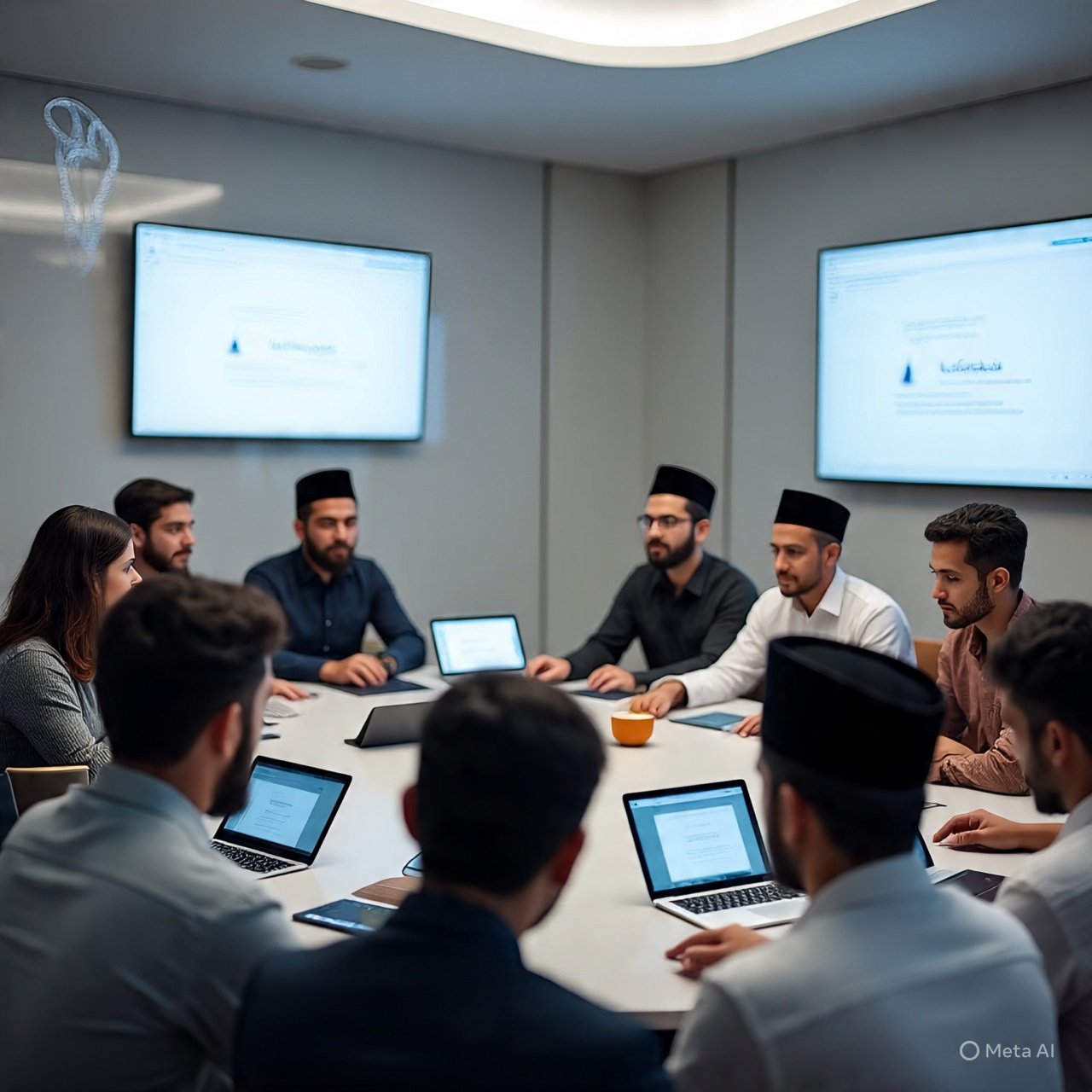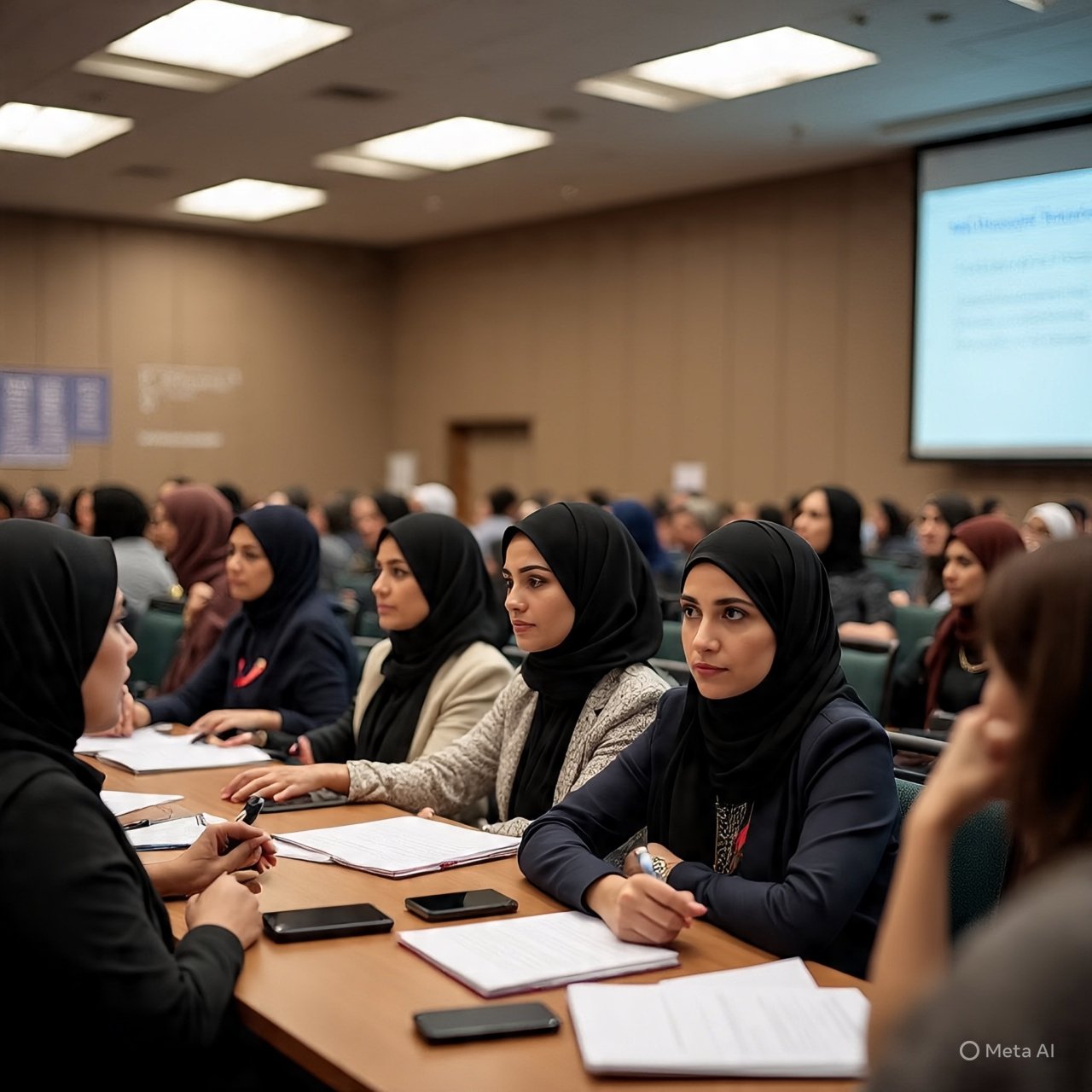9th Century Muslim Women Traders: Feminist Trade Routes
Introduction
The 9th century CE was a period of peak Islamic civilization, during which Muslim women traders played a significant role in shaping global trade and economic systems. This paper introduces a new academic framework “Feminist Trade Routes,” which explores the business networks, trade strategies, and profound global impacts of 9th century Muslim women traders. Historical evidence reveals that in the 9th century, Muslim women traders were not limited to local commerce alone, but had established extensive trade networks spanning from the Mediterranean to the Indian Ocean. These women not only discovered trade routes but also promoted intercultural relations, introduced financial systems, and laid the foundation for modern concepts of global trade. This research examines how these women utilized Islamic law, social structures, and economic opportunities to their advantage, and how their successes paved the way for women’s commercial participation in subsequent centuries.
Women’s Rights and Opportunities in 9th Century Islamic Society
In 9th century Islamic society, women had rights to inheritance, property, and contracts, which enabled them to participate in commercial activities. Islamic law gave women the authority to own property, make commercial agreements, and protect their rights in court. This legal protection enabled women traders to effectively run their businesses. Historical documents reveal that in the 9th century, Muslim women owned land properties, merchant ships, and factories. They made agreements with trading partners, gave loans, and managed their businesses themselves. These rights made them economically independent and gave them the opportunity to engage in commercial activities on a large scale.
Trade Networks of Muslim Women Traders
9th century Muslim women traders established extensive trade networks spanning the Mediterranean, Indian Ocean, and Central Asia. These networks not only provided routes for goods delivery but were also sources for the exchange of information, culture, and technical knowledge. Women traders established trade connections between different regions through these networks, which were early patterns of globalization. They served as cultural bridges between different cultures and societies, promoting intercultural relations. Their trade networks not only promoted economic development but also enabled intellectual and cultural exchange.
Business Strategies of Women Traders
9th century Muslim women traders adopted various business strategies to make their enterprises successful. Some of these women established trade partnerships, while others ran their businesses as family enterprises. They adopted diversified investment strategies to reduce commercial risks, including trading different types of goods and investing in different regions. Women traders focused on quality to achieve success in commercial competition and used effective methods for displaying and selling their goods. They established efficient systems for exchanging commercial information that kept them informed about market trends.
Trade Products of Women Traders
9th century Muslim women traders were engaged in trading various types of products. These included precious stones, jewelry, perfumes, silk, cotton fabrics, and other luxury items. Some women also achieved success in trading food items such as spices, fruits, and dried nuts. The trade of these products occurred not only locally but internationally, providing women traders with extensive economic benefits. Women traders paid special attention to maintaining the quality of their products, which was an important reason for their success.
Women Traders and Islamic Commercial Law
9th century Islamic commercial law provided a strong legal framework for protecting the rights of women traders. Islamic law established clear rules and regulations for commercial contracts, partnerships, and financial transactions. Women traders were aware of these laws and used them to protect their rights. They fought their own cases in courts and resorted to institutions established under Islamic law for resolving commercial disputes. This legal protection made commercial activities safe and profitable for women traders.
Education and Knowledge Transfer of Women Traders
9th century Muslim women traders considered education and knowledge important for their success. They acquired education in trade, accounting, and languages, which enabled them to succeed in international trade. Women traders transferred their knowledge and experience to future generations, establishing family trade traditions. They preserved knowledge of trade secrets, market trends, and business strategies and passed it on to their successors.
Cultural and Intellectual Exchange of Women Traders
9th century Muslim women traders played an important role in cultural and intellectual exchange. They traveled between different regions and became familiar with different cultures, languages, and traditions. They brought this knowledge back with them, promoting intercultural understanding. Women traders exchanged not only goods but also ideas, technical knowledge, and cultural values. This exchange played an important role in social development and civilizational evolution.
Women Traders and Cooperation with Religious Institutions
9th century Muslim women traders promoted their businesses by cooperating with religious institutions. They established partnerships with mosques, madrasas, and other religious institutions, which provided them access to trade networks. Women traders also provided financial support to religious institutions, which enhanced their social status. This cooperation provided not only commercial but also social and religious benefits.
Women Traders’ Contribution to Financial Systems
9th century Muslim women traders played an important role in the development of financial systems. They provided financial services such as money changing, lending, and investment. Women traders introduced new financial instruments to facilitate commercial transactions, including hundis and other commercial documents. Their contribution played a significant role in the development of financial systems and laid the foundation for modern banking systems.
Women Traders and Government Relations
9th century Muslim women traders established close relations with government institutions. They made commercial agreements with rulers and government officials and participated in government projects. Women traders also played their role in shaping trade policies and provided advice to the government on commercial matters. These relations helped them obtain commercial privileges and protection.
Social Services of Women Traders
9th century Muslim women traders used their economic success for social services. They donated for the construction of mosques, hospitals, madrasas, and other public institutions. Women traders established charitable organizations to help poor and needy people and participated in social welfare projects. These social services not only fulfilled their religious responsibilities but also elevated their social status.
Business Records of Women Traders
The business records of 9th century Muslim women traders are witnesses to their successes. These records provide information about commercial agreements, financial transactions, and business partnerships. Historical documents reveal that women traders preserved their business records in an organized manner, reflecting their professional capabilities. These records help in better understanding the economic and commercial systems of the 9th century.
Maritime Trade of Women Traders
9th century Muslim women traders also played an important role in maritime trade. They owned merchant ships and traded through the Mediterranean, Indian Ocean, and other waterways. Women traders adopted various strategies to reduce the risks of maritime trade, including merchant ship convoys and marine insurance. Their maritime trade not only promoted economic development but also strengthened international trade connections.
Factors Behind Women Traders’ Success
There were several factors behind the success of 9th century Muslim women traders. These included legal rights, education, trade networks, and social support. Women traders effectively utilized these factors to make their businesses successful. Their success played an important role in the economic development of not only their own families but the entire society.
Summary and Future Possibilities
The stories of 9th century Muslim women traders teach us that women have always played an important role in shaping economic and commercial systems. Their successes can serve as guidance for today’s women entrepreneurs. In the future, by learning from these historical patterns, we can promote women’s commercial participation and establish more inclusive economic systems.


